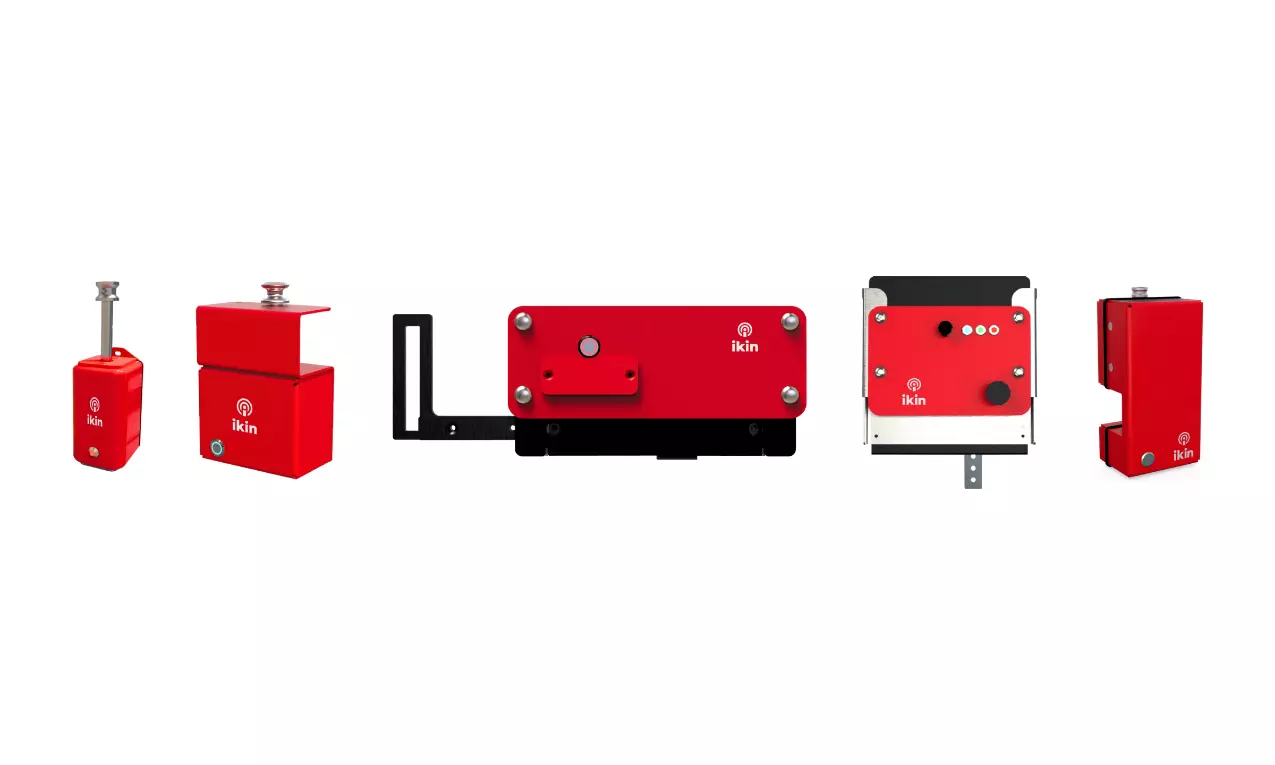How smart locks are combating India’s cargo theft epidemic

IKIN smart locks
As India’s logistics ecosystem scales up to match the demands of e-commerce, manufacturing, and cross-border trade, it also faces a mounting challenge that rarely makes headlines - cargo theft and pilferage. Despite advances in fleet management, route optimisation, and supply chain digitisation, the industry continues to bleed millions annually due to the loss of goods in transit. In 2024, India ranks among the top five countries globally for cargo theft, contributing to a growing concern among fleet operators, transport aggregators, and logistics service providers.
Recent global data compiled through extensive collaboration with law enforcement, trade bodies, and private stakeholders underlines the scale of the issue. India accounted for nearly 10% of reported global cargo theft incidents, with insiders contributing to a startling 26% of thefts, according to BSI Consulting and TT Club 2024 Cargo Theft Report. Critical routes passing through Uttar Pradesh, Madhya Pradesh, Rajasthan, Haryana, and Bihar have emerged as theft hotspots, with overnight halts at unmonitored fuel stations and roadside lay-bys acting as soft targets for criminal elements.
A pan-Asian problem with local triggers
While cargo theft is a worldwide issue, the logistics realities in India and broader Asia introduce unique challenges. According to the Global Cargo Theft Trends 2024 report, truck-related thefts surged to 76% in 2024, up from 68% the previous year. This data is particularly relevant in the Indian context, where over 70% of cargo movement still relies on road transport.
Among the preferred targets for theft are food and beverage items (22%), agricultural produce (10%), and electronics (9%) - categories that dominate India’s domestic and export freight. These goods are not only of high value but also relatively easy to resell, making them especially attractive to organised theft syndicates.
Moreover, the modus operandi has become increasingly sophisticated. Beyond physical hijackings (21%) and vehicle thefts (20%), criminals now exploit documentation loopholes, corrupt insiders, and poor infrastructure to stage thefts that often go unnoticed until delivery failures expose the breach.
The fragility of the logistics chain, especially during long-haul transits and at transitional hubs like warehouses and cross-docks, increases the attack surface. The consequences are far-reaching - not only do thefts result in direct losses, but they also dent customer trust, delay downstream operations, and inflate insurance premiums.
Smart locks: From passive security to active deterrence
In response to the growing threat of cargo theft, the logistics industry is moving away from disposable plastic seals and legacy padlocks toward smart, tech-enabled physical security. These next-generation smart locks provide a multi-layered security framework that does more than just secure - it actively protects, monitors, and informs.
Cost-effective, sustainable, and secure
Unlike traditional plastic seals that are single-use, vulnerable to tampering, and environmentally unsustainable, modern smart bolt seals are reusable, metallic, and ruggedly built for long-term use. By replacing plastic-based systems, logistics companies can reduce recurring seal costs by up to 35% annually, while also contributing to the reduction of plastic waste - a critical sustainability goal for the industry.
Core features that deliver real value
Smart locks are now engineered to operate in India’s most demanding highway conditions, with durable all-metal bodies designed for repeated use across high-mileage fleets. But the value lies beyond the hardware - what truly elevates smart locks is the intelligent ecosystem behind them. Key features include:
- Tamper alerts: Instant notifications of unauthorized access or physical breaches, enabling real-time intervention.
- Geofencing: Ability to define virtual fences based on geo-location, restrict unlock operations, and trigger alerts for any unauthorized route deviations.
- Full audit trails: Every lock action is recorded - who opened it, where, and when - ensuring traceability and compliance across the supply chain.
This combination transforms smart locks from passive devices into active deterrents and diagnostic tools, helping logistics providers investigate incidents, prevent theft, and meet regulatory standards with ease.
Intelligent risk mitigation with real-time visibility
By connecting smart locks to cloud-based monitoring systems, logistics operators gain end-to-end visibility in real time. Alerts from geofence violations or tamper attempts can be acted upon before theft or loss occurs, especially in high-risk transit corridors. Combined with historical route data and theft hotspot analysis, these tools empower fleet managers to plan safer journeys and take proactive risk mitigation steps.
IKIN Global
At the forefront of this security revolution is IKIN Global, a Kerala-based technology company transforming how logistics security is approached. With its smart locks built entirely in India, IKIN serves clients across e-commerce, banking, quick commerce, cold chain, and logistics, where cargo security is mission-critical.
What sets IKIN apart is the tight integration of robust hardware with intelligent software, delivering predictive alerts, remote diagnostics, and actionable insights. With thousands of units already deployed, IKIN is now expanding globally, with pilots underway in the Middle East and the USA.
From the backroads of Bihar to the freeways of California, IKIN exemplifies a "Made in India, Built for the World" success story - proving that smart security can unlock not just containers, but a safer, more efficient global supply chain.

Nibu Alias
He is the CEO of smart security solutions brand IKIN and Co-Founder of its parent SectorQube.


